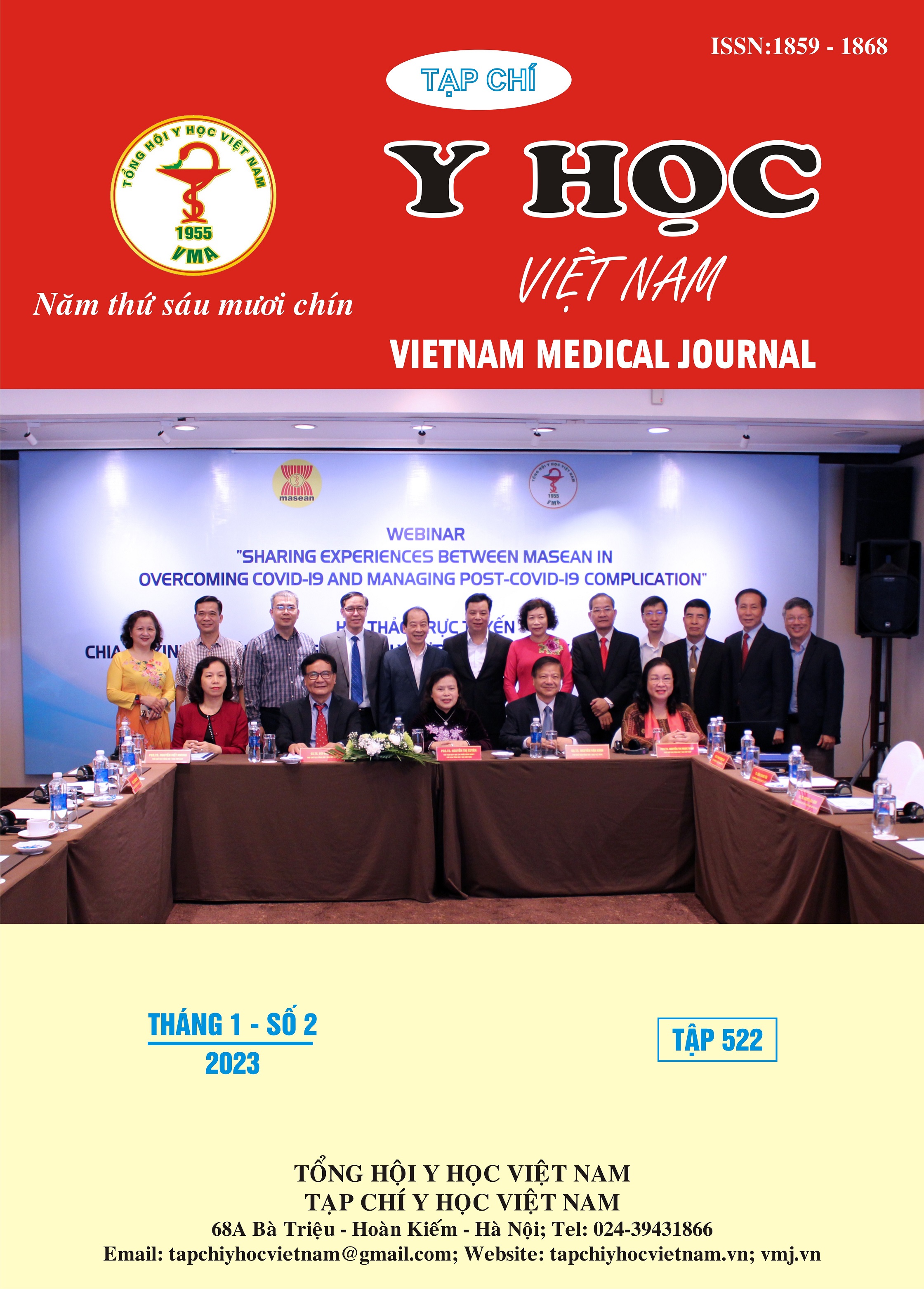APPLICATION OF THE SPECTOR COGNITIVE INTERVENTION PROGRAM ON PATIENTS WITH VASCULAR DEMENTIA
Main Article Content
Abstract
Objectives: Describe the application process and initial results of the Spector cognitive intervention program on patients with mild vascular dementia. Subjects and method: A case-control study to evaluate the initial results of the Spector cognitive intervention program on 27 patients with mild vascular dementia at the National Hospital of Geriatrics in August 2022. Results: The rate of patients completing the Spector intervention program was 100%, and no withdrawal cases were recorded during the intervention. The program is adapted and standardized to apply on Vietnamese people. The improvement of cognitive function on patients in the intervention group and the control group before and after the intervention, as assessed through the ADAS Cog scale, was -0.6421±1.0506 and 0.1792±1.7937, respectively no statistical significance with p = 0.155. Patient's quality of life before and after the intervention was assessed based on the EQ5D5L scale of 0.0619±0.0849 with the intervention group; 0.0611±0.0879 in the control group and the QoLAD score is 0.1429±1.3506 in the intervention group; 0.0769±1.1875 in the control group. These differences were not significant in case of p=0.978 and p=0.86. Conclusion: The Spector cognitive intervention program is feasible to apply on the dementia patients in Vietnam. The first step of the Spector cognitive intervention on patients with mild vascular dementia has not brought a statistically significant change in cognitive function and quality of life after 2 weeks from the intervention.
Article Details
Keywords
Cognitive intervention, cognitive function, vascular dementia.
References
2. Lobbia A, Carbone E, Faggian S, et al. The Efficacy of Cognitive Stimulation Therapy (CST) for People With Mild-to-Moderate Dementia. Eur Psychol. 2019;24(3):257-277. doi:10.1027/1016-9040/a000342
3. Alvares-Pereira G, Silva-Nunes MV, Spector A. Validation of the cognitive stimulation therapy (CST) program for people with dementia in Portugal. Aging Ment Health. 2021;25(6):1019-1028. doi:10.1080/13607863.2020.1836473
4. Paddick SM, Mkenda S, Mbowe G, et al. Cognitive stimulation therapy as a sustainable intervention for dementia in sub-Saharan Africa: feasibility and clinical efficacy using a stepped-wedge design. Int Psychogeriatr. 2017;29(6):979-989. doi:10.1017/S1041610217000163
5. Hall L, Orrell M, Stott J, Spector A. Cognitive stimulation therapy (CST): neuropsychological mechanisms of change. Int Psychogeriatr. 2013;25(3):479-489. doi:10.1017/S1041610212001822
6. Cove J, Jacobi N, Donovan H, Orrell M, Stott J, Spector A. Effectiveness of weekly cognitive stimulation therapy for people with dementia and the additional impact of enhancing cognitive stimulation therapy with a carer training program. Clin Interv Aging. 2014;9:2143-2150. doi:10.2147/CIA.S66232
7. Capotosto E, Belacchi C, Gardini S, et al. Cognitive stimulation therapy in the Italian context: its efficacy in cognitive and non-cognitive measures in older adults with dementia. Int J Geriatr Psychiatry. 2017;32(3):331-340. doi:10.1002/gps.4521
8. Coen RF, Flynn B, Rigney E, et al. Efficacy of a cognitive stimulation therapy programme for people with dementia. Ir J Psychol Med. 2011; 28(3):145-147. doi:10.1017/S0790966700012131


